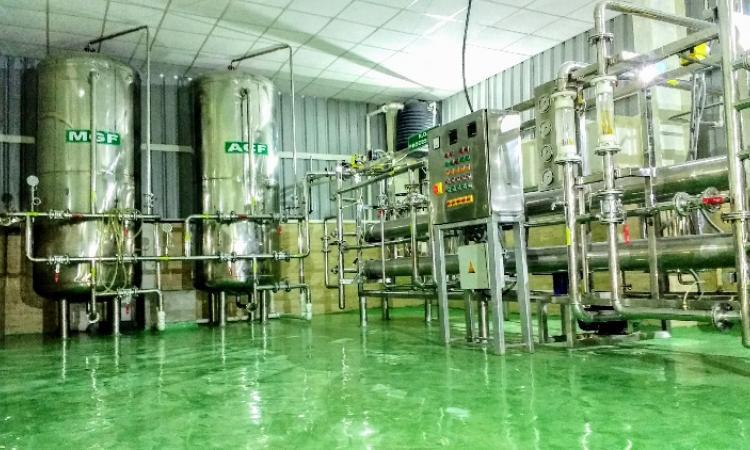
Revised standards for packaged drinking water to apply from January 1st, 2021
In response to a direction from the National Green Tribunal last year, the Food Safety and Standards Authority of India (FSSAI) has made new amendments to the Food Safety and Standards and Regulations. As per the new amendment, the mandatory requirement of calcium and magnesium in packaged drinking water has been set at 20-75 mg/litre and in the range of 10-30 mg/litre respectively. The new rules were to be applied from July 1, 2020, but were extended to January 1, 2021, due to the pandemic. (The Hindu Business Line)
Bihar Deputy CM admits lapses in Har Ghar Nal Ka Jal scheme, seeks entrepreneurs help
Bihar Deputy Chief Minister Renu Devi has accepted lapses in Chief Minister’s flagship Har Ghar Nal Ka Jal scheme. She has clarified that this can happen when projects are being carried out on a big scale and has urged entrepreneurs to come up with solutions. The remark came a few days after 41 percent tap water supply projects in the state were reported partially or fully non-functional. As per the reports, 186 of the 2,954 projects inspected were noticed incomplete, while 279 projects were found non-functional during the inspection. (Hindustan Times)
States cooperation sought for successful implementation of river interlinking projects
In the 34th annual general meeting of the National Water Development Agency (NWDA) Society and 18th meeting of the Special Committee for Interlinking of Rivers (SCILR), the Jal Shakti Ministry has urged cooperation from the states concerned for their successful implementation of the river interlinking projects. The Centre has assured that all the concerns raised by states on such projects will be addressed and that the former is committed to implementing the programme with consensus and cooperation of the state governments concerned. During the meeting, it was informed that most of the clearances for Ken-Betwa link project were accorded while the water sharing in Par-Tapi-Narmada link project was also under discussion and an investment clearance worth Rs 4,900 crore was given to Bihar’s Kosi-Mechi link project. (Outlook India)
NGT gets strict over stone crushing
A petition filed against the operation of stone crushers in Haryana’s Mahendergarh contended that the activity was carried out without proper disclosure and evaluation of the water source and in the absence of mitigating dust and air pollution in the area. Following the plea, the National Green Tribunal (NGT) has held that the stone crushers cannot get preference over and above the right to life. The tribunal has ordered to set up a joint committee along with the Central Pollution Control Board (CPCB) to take appropriate steps against the stone crushers operating illegally. Also, the committee has been directed to study the health impacts of the crushers. (The Hindu)
Ensure 100 percent collection, treatment of sewage: CPCB to DJB against Yamuna frothing
In view of frothing in Yamuna river downstream of ITO and Okhla Barrage in Delhi, the Central Pollution Control Board (CPCB) has asked the Delhi Jal Board (DJB) to ensure 100 percent collection and treatment of domestic sewage generated in the city. As per the pollution watchdog, continuous discharge of partially treated and untreated wastewater from 22 drains resulted in this frothing. Along with this, CPCB has also asked the DJB to ensure that no untreated domestic wastewater is discharged into any of the drains. Recently, pictures of toxic froth floating on the surface of the Yamuna river in Delhi surfaced on social media with experts blaming detergents for this pollution. (Outlook India)
This is a roundup of important policy matters from December 1 - 9, 2020. Also, read news this week.